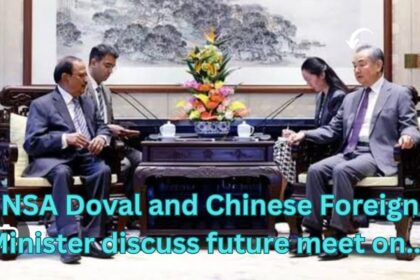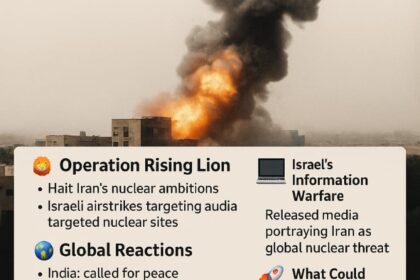
India Refuses SCO Document in China, Know all Live Updates Now
India’s Bold Diplomacy at SCO Summit 2025
India’s refusal to sign the joint statement at the Shanghai Cooperation Organization (SCO) Defense Ministers’ Summit hosted by China has gone viral globally. Defense Minister Rajnath Singh openly declined to endorse the document due to its omission of the Pulwama terror attack that highlighting India’s strong stand against selective condemnation of terrorism.
Why India Rejected the SCO Document
At the SCO Defense Ministers’ pre-summit gathering in China, Rajnath Singh evaluated a joint statement presented by Chinese leadership. The document condemned attacks in Baluchistan and other incidents involving BLA (Baluchistan Liberation Army), but it completely skipped referencing the Pulwama terror attack—a pivotal moment in India’s fight against terrorism.
| SCO Statement Mentioned | ❌ SCO Statement Ignored |
| Balochistan Attacks (BLA) | Pulwama Terror Attack (India) |
| Zafar Express Attack (Pakistan) | Cross-border terrorism in India |
India’s Stand: Consistency in Foreign Policy
This is not the first time India disagreed with the SCO’s political statements:
- In June 2025, India also refused to sign an SCO document that condemned Israel’s airstrike on Iran.
- Ajit Doval, India’s National Security Advisor, previously spoke out at another SCO forum, denouncing terrorism hypocrisy.
Such consistent positions underline India’s uncompromising stance against terrorism and support for balanced international diplomacy.
International Media Reactions
Leading global media houses—Euro News, US News, and others—extensively covered India’s SCO rejection. They highlighted:
“India refused to endorse a biased document at China’s SCO summit.”
“Unity among SCO members fractured as India walks out of consensus.”
These headlines overshadowed the summit itself, making India’s diplomatic assertion the main international takeaway.
Visuals That Tell the Story
Newly surfaced videos from the summit show Rajnath Singh:
- Reviewing the SCO document carefully
- Holding a pen, ready to sign if content was neutral
- Eventually declining to sign due to imbalanced mention of terror attacks
His decision was supported by Indian diplomats present, who conveyed India’s official position to other member nations.
Shashi Tharoor’s Bold Statement in French
In another diplomatic exchange, Shashi Tharoor, MP and diplomat, recently confronted a Russian official—in French—questioning why Pakistan is part of a counter-terrorism coalition despite its known sponsorship of terror groups.
“How can you include Pakistan in a group fighting terrorism? Do you not see what’s happening there?”
Tharoor’s firm yet articulate stand further strengthens India’s diplomatic offensive against state-sponsored terrorism.
In India’s Foreign Policy: Firm, Fearless, and Focused
India’s assertiveness—seen through voices like Jaishankar, Ajit Doval, Rajnath Singh, and Shashi Tharoor—reflects a unified geopolitical posture. The country now openly refuses to be part of hypocritical narratives, even in high-stakes global forums.
India’s SCO Dilemma: Should India Remain a member?
As India continues to clash with SCO statements, public discourse is rising over India’s long-term membership.
| Pros of SCO Membership | Cons of SCO Membership |
| Regional diplomacy | China-Pakistan dominance |
| Security dialogues | Terrorism bias & silence |
| Trade discussions | Imbalanced narratives |
Public Opinion Poll:
Should India remain in the SCO?
Share your thoughts in the comment section.
Cultural Contradictions: Bollywood vs Diplomacy?
Despite strong political stands, many in India criticize Bollywood’s collaborations with Pakistani artists, which contradict the nation’s firm diplomatic postures. In contrast, actors from countries like Iran or Russia, who oppose their governments, are sometimes embraced internationally—but not those who actively support state-sponsored terrorism.
“Unity is crucial—not just in politics but also in art and culture—when national security is at stake.”
Global Trends: India’s Actions Set Diplomatic Precedent
India’s recent SCO refusal has become a diplomatic benchmark. Countries worldwide now observe India as a nation that:
- Defends its national interest fearlessly
- Refuses to compromise on terrorism-related issues
- Demands fairness in multilateral group actions
Timeline of India’s SCO Disagreements
| Date | Event |
| June 2025 | India refused to condemn Israel at SCO summit |
| July 2025 | Rajnath Singh refused to sign SCO statement on terrorism |
| Ongoing | Ajit Doval & Jaishankar raise terror hypocrisy concerns in forums |
Will PM Modi Attend the Final SCO Summit?
Given the current geopolitical tension, it’s uncertain whether Prime Minister Narendra Modi will attend the main SCO summit. With previous absences and recent clashes, India may skip the summit entirely.
“PM Modi’s decision will reflect India’s final stance on SCO’s direction under Chinese leadership.”
Final Thoughts: Terrorism Cannot Be a Political Tool
India’s refusal to sign a biased SCO document reflects mature diplomacy and zero-tolerance for selective justice. History has shown that nations which use terrorism as a geopolitical tool often face devastating blowback.
India’s message is loud and clear: There can be no compromise on terrorism—anywhere, any form, any platform.
Your Opinion Matters
Do you think India should remain a member of the SCO?
Should Bollywood support India’s diplomatic stance by avoiding collaboration with Pakistan-backed artists?
Drop your opinions in the comment section.
FAQs of this page.
Q1. Why did India refuse to sign the SCO document in China?
India, represented by Defense Minister Rajnath Singh, refused to sign the SCO joint statement because it failed to mention the Pulwama terror attack, despite condemning other attacks in Pakistan. India viewed this omission as hypocritical and biased.
Q2. What is the Pulwama terror attack and why is it significant?
The Pulwama terror attack occurred in 2019 and resulted in the death of 40+ Indian paramilitary personnel. It was carried out by a Pakistan-based terror group and remains a critical event in India’s anti-terrorism narrative.
Q3. Has India rejected SCO statements before?
Yes. In June 2025, India also rejected an SCO document that condemned Israel for striking Iran. India refused to join what it saw as a biased political statement, reflecting its independent foreign policy.
Q4. Who are the key Indian figures involved in this diplomatic move?
Key figures include:
- Rajnath Singh – Defence Minister who rejected the document
- Ajit Doval – National Security Advisor who earlier criticized SCO’s stance on terrorism
- S. Jaishankar – External Affairs Minister
- Shashi Tharoor – MP who boldly addressed Pakistan’s terror links in French to a Russian official
Q5. What has been the international reaction to India’s stand?
Global media outlets like Euro News, U.S. News, and others have widely reported India’s stance. The focus of global headlines shifted from the summit itself to India’s rejection of biased statements, showing global attention to India’s diplomatic posture.
Q6. Will Prime Minister Modi attend the main SCO summit?
As of now, PM Modi’s participation remains uncertain. With senior leaders like Ajit Doval and Rajnath Singh already taking strong positions, chances appear low—but Modi’s foreign policy decisions often come strategically at the last moment.
Q7. Should India remain a member of the SCO?
This is a topic of active debate. While some believe SCO no longer serves India’s strategic interests, others argue that staying within gives India a platform to push back diplomatically. Public opinion is divided.
Q8. What role does China play in the SCO?
China is a founding member and current host of the SCO summit. Critics argue that China often manipulates SCO platforms to protect its allies like Pakistan and avoid fair discussions on terrorism.
Q9. How does India’s cultural diplomacy affect its geopolitical image?
Many criticize India’s Bollywood industry for working with Pakistani artists despite ongoing geopolitical tensions. This creates a conflicting narrative when India’s government is pushing strong anti-terror diplomacy.
Q10. How is India’s response different from other member countries?
While most SCO members signed the statement, India alone refused, citing national interest and calling out the selective treatment of terrorism. This sets India apart as a bold and independent voice within the group.






